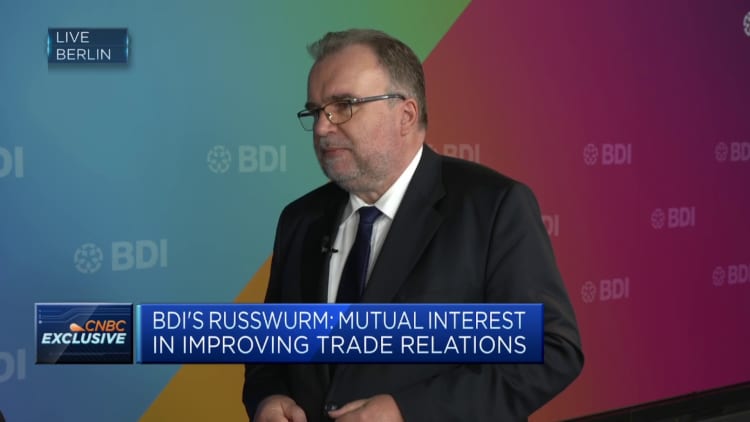
German energy prices are so high that some companies are considering leaving the country altogether, according to Siegfried Russwurm, head of the German Industry Federation (BDI).
CNBC's Annette Weisbach asked Russwurm whether the ongoing energy situation was "bad enough" for companies to relocate, to which he responded: "It is indeed."
"A lot of family-owned companies ... have very operational plans to relocate," Russwurm said, adding that the current business conditions in Germany had created a "cocktail" of obstacles for companies.
"Many Germany-headquartered businesses are doing well globally, but they are struggling with operations in their own country," he added, listing red tape and slow administration as additional pressures faced by companies in the current climate.
Economy Minister Robert Habeck addressed the issue of companies looking to move elsewhere in his speech on the second day of the BDI's Day of Industry conference in Berlin on Tuesday.
"In my view Germany is an attractive location for both new and existing companies," Habeck said, according to a translation by CNBC. "Of course, materials industries are under pressure as a result of higher energy prices, but there are political decisions to be made."
More or less solved?
Electricity and gas prices hit record highs across Europe in 2022 following Russia's invasion of Ukraine, and sky-high costs continue to contribute to stubbornly high inflation across mainland Europe and in the U.K.
In May, the German government revealed plans to set aside around 4 billion euros ($4.4 billion) each year to subsidize electricity prices for energy-intensive industries, in an attempt to shield some businesses from high costs.
"We want the industry ... to stay home in Germany and be given a transformation perspective. The industry electricity price is intended for this," Habeck said at a press conference on May 22.
Germany's central bank President Joachim Nagel said Germany's energy crisis was "more or less solved" on April 13, citing an "inherent strength" that would allow the country to recover from the dual shocks of the pandemic and the Ukraine war.
"The German industry has a good capability to deal with the situation ... and I believe they will overcome this, and they will go back to the levels we saw before the pandemic," he said.
However the BDI made a "sobering" prediction for Germany on Monday, forecasting a flatline in gross domestic product in 2023 compared to the previous year.
"A plus 2.7 (percent in GDP growth) globally and zero for us clearly says: Germany is falling behind," Russwurm said in a statement.
Data from the German statistics office on May 25 showed a downward revision to Germany's GDP for the first three months of 2023, putting the economy into a technical recession. GDP was initially expected to come in at zero, but was changed to -0.3%.


